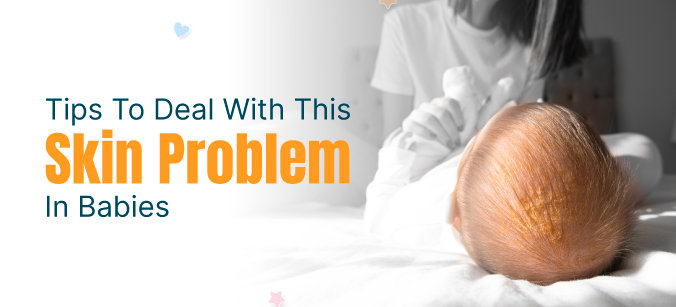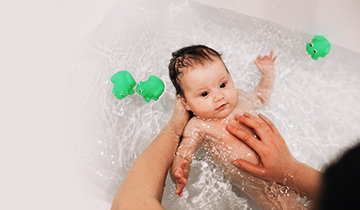- Home
- Blog
- Mom & Baby Care
Dos and Don’ts for Breastfeeding Mothers
Mom & Baby Care
Dos and Don’ts for Breastfeeding Mothers
By - 08 February 2023
Share this article
0
0 like

Are you a breastfeeding mother? Whether this is your first baby or you have many, each baby is unique. Every mother’s experience is unique with breastfeeding. It’s a learning process for you and your baby too. Your baby is learning to latch or suck or swallow and you must be learning about the best position to feed your baby, observing the baby’s hunger cues.
Managing your breast milk supply and breast health is critical for pregnant women. Your body needs about 450 to 500 extra calories a day to make breast milk for your baby. A nutrient-dense postpartum diet will fuel your energy reserves to care for the growing baby and also support lactation.
A healthful diet focused on magnesium, vitamin B6, folate, calcium, and zinc influences lactation. Breastfeeding is the best source of nutrition for most infants. It can also reduce the risk of certain health conditions for both infants and mothers.
You must have come across many issues as a pregnant woman or breastfeeding mother such as sore nipples, breast engorgement, latching issues, postpartum depression, and anxiety. But there is a workable solution for every breastfeeding problem you may face.
DOs and DON’Ts for lactating mothers:
- Living stress-free and getting good sleep are primary factors to regulate milk supply.
- Take good care of your breasts to avoid potential issues like sore nipples and infection. Be vigilant about basic breast care such as keeping your hands clean, washing breasts with warm water daily, avoiding soap on breasts, and changing breast pads often. You can also consult with Apollo doctors online and buy a nipple cream that is safe for you at your doorstep.
- Encourage and help your baby to latch properly from the start. Be patient till the baby adjusts to the rhythm and position of feeding.
- Make water your friend. Always carry a water bottle when you go out, or eat foods high in water content such as cucumbers, lettuce, watermelon, and peaches. Water increases breast milk production, decreases the risk of urinary tract infections, and decreases constipation issues.
- Concentrate on your proteins, calcium, and good fats. Include plenty of fruits and vegetables. Pick a handful of nuts and seeds.
- Eating fish during pregnancy and breastfeeding provides key nutrients that support a child’s brain development.
- Iodine and choline are key nutrients while breastfeeding. It can be found in dairy products, eggs, seafood, or in beans, peas, and lentils.
- Do not ignore Vitamin A, D, and C. Vitamin A develops infant eye health, Vitamin D is needed for optimum skeletal growth and Vitamin C boosts baby’s immunity.
- Limit common dietary sources of caffeine as much as possible such as tea, coffee, sodas, chocolates, and energy drinks. Infants may appear to be more fussy or irritable as it is not easily digestible for them if mothers consume more caffeine.
- Last but not least! Mothers should be prepared and plan their outfits. Invest in nursing pads, bed linens, and smart camouflage colors while you dress up. Get the best breastfeeding pads of trusted brands from Apollo Pharmacy.
Sometimes, the use of prenatal vitamins during postpartum may exceed the iron and folic acid needs of a breastfeeding mother, especially those who are following a non-vegetarian diet. However, people with vegetarian and vegan diets may feel the need for multivitamin supplements to gain adequate nutrients. In such cases, lactation supplements are suggested by doctors for mothers. It stimulates breast milk production and balances hormones while maintaining optimum reproductive health. Buy your choice of supplements from Apollo Pharmacy anytime anywhere in various flavors and suitable forms such as capsules, powder, granules, etc.
It is a great feeling to understand your baby’s eating time and habits, and to learn to respond to their actions. t it is also one of the processes where mothers create a strong bond with their babies.
Services
Mom & Baby Care
Leave Comment
Services
Recommended for you

Mom & Baby Care
Anaemia in Children: Signs, Causes, and Treatment
Learn about the causes, symptoms, and treatment options for anaemia in children. Discover lifestyle changes and medical interventions to manage anaemia effectively.

Mom & Baby Care
Patchy Scalp Of Babies: Know How To Deal With It
Cradle cap, also known as congenital seborrheic dermatitis, is an itchy, scaly skin on newborns' scalps, eyebrows, and eyelids. Check out this guide to find out precisely what is cradle cap and how you can treat it!

Mom & Baby Care
Fun Activities to Do With Your Child to Help Them Grow and Learn
Raising a newborn can be a lot of work, but it's also a lot of fun! There are so many simple activities you can do with your little one to help them grow and learn.
Subscribe
Sign up for our free Health Library Daily Newsletter
Get doctor-approved health tips, news, and more.

